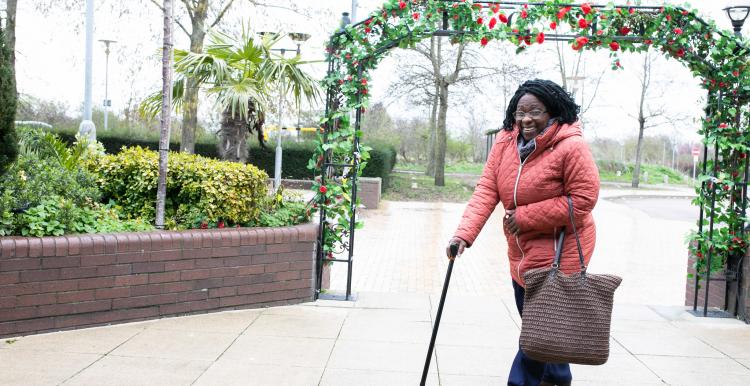What does shielding mean?

National lockdown
To help stop the spread of coronavirus, the government is advising everyone to stay at home from 5 January 2021.
If you have been told that you are at high risk from Covid-19 (clinically extremely vulnerable) you should not attend work, school, college or university, and limit the time you spend outside the home. You should only go out for medical appointments, exercise or if it is essential.
This page will be updated once further guidance is available. To check the latest Government guidance please visit Gov.uk.
Frequently asked questions
The following Q&A, based on information provided by the Government, aims to help you get some of the answers you need to know about what shielding means in practice.
What does ‘shielding’ mean?
Shielding is the word used to describe how to protect those at highest risk of severe illness if they catch Covid-19. You can shield yourself following the Government guidance, and shield others by minimising all interaction between yourself and those who are most at risk.
What do I need to do if I have been told to shield?
Clinically extremely vulnerable people are advised to stay at home as much as possible. You can still go outdoors to exercise or to attend health appointments, and you can still meet with your support bubble.
You are strongly advised to work from home if you can. If you can't work from home, then you should not attend work and you may be eligible for the Coronavirus Job Retention Scheme (furlough). If you have received a letter telling you to shield, you can use it as evidence for your employer to show you can't work outside your home.
How do I get food and medication if I need to shield?
Ask family, friends and neighbours to support you and use online services. You are advised not to go to the shops or to a pharmacy.
NHS Volunteer Responders will offer support with:
- collecting shopping, medication (if your friends and family cannot collect them for you) or other essential supplies
- a regular, friendly phone call, either with someone else who has previously been advised to shield or with different volunteers
- transport to medical appointments
Call 0808 196 3646 between 8am and 8pm to arrange support or visit the NHS Volunteer Responders website. Speak to your health care professional to arrange transport support.
You can also get a free four-month supply of vitamin D supplements to support your general health. Go to the NHS website to register.
Wiltshire Wellbeing Hub
Wiltshire Council's hub is available to anyone who is struggling during this difficult time, such as people who are identified as clinically extremely vulnerable or self-isolating and don’t have a support network around them or know where to get help.
The hub is open 9am to 5pm Monday to Friday and 10am to 4pm on Saturdays. Call 0300 003 4576 or email wellbeinghub@wiltshire.gov.uk.
I haven’t been contacted but I think I am in the high-risk group – what should I do?
If you have not received a letter or been contacted by your GP or hospital consultant, but feel you are within the high-risk category, you should contact your GP practice or hospital team. If you are unsure, check the list on the Gov.uk website to see if you are in the most at risk/extremely vulnerable group.
My main carer is unwell – what do I do?
Speak to your carers about back-up plans for your care in case your main carer is unwell or needs to self-isolate.
You should have an alternative list of people who can help you with your care if your main carer becomes unwell.
You can also contact Wiltshire Council Adult Social Care on 0300 456 0111 for advice on how to access care, or if you're a parent carer, the Children’s Multi Agency Safeguarding Hub (MASH) on 0300 456 0108.
Visit the Carer Support Wiltshire website for more advice.
I'm worried that shielding is going to affect my mental health - what do I do?
Try to stay in touch with those around you over the phone, by post or online. Let people know how you would like to stay in touch and build that into your routine. This is important in looking after your mental wellbeing and you may find it helpful to talk to them about how you are feeling if you want to.
Remember, it is okay to share your concerns with others you trust and in doing so you may end up providing support to them too. Or you might want to try an NHS recommended helpline.
Every Mind Matters offers advice and practical steps that you can take to support your mental wellbeing during the pandemic.
We've also put together some advice on how to look after your mental health during this time.
Share your views on changes to services
Since March 2020, NHS and social care services have had to change the way they work to meet coronavirus safety guidelines, while voluntary and community groups have stepped up their support to help local people through the pandemic.
We want to understand how these changes have been working for you, what's been good and what could be better.


